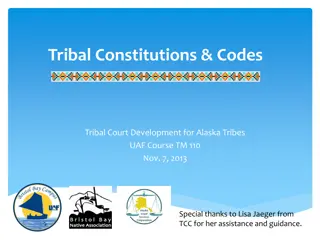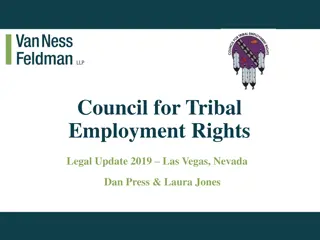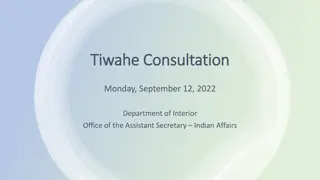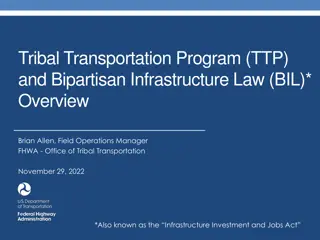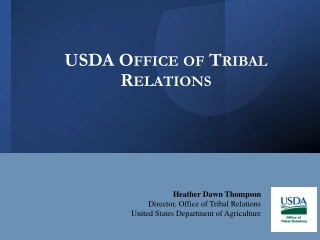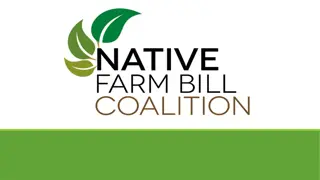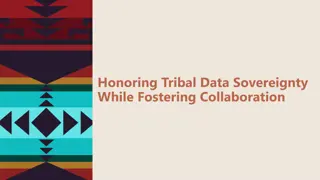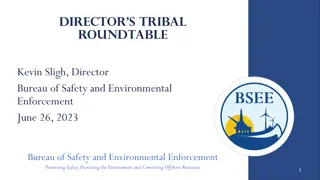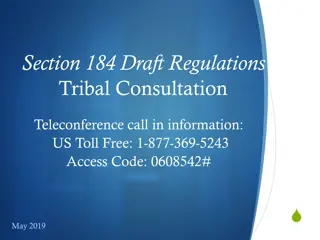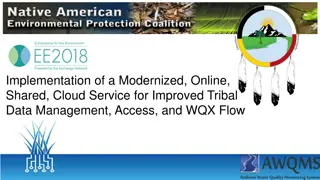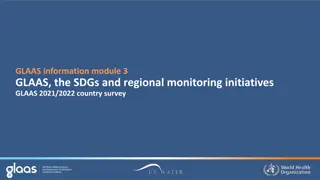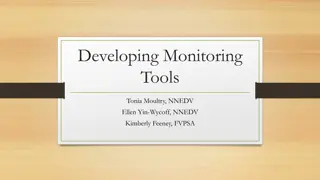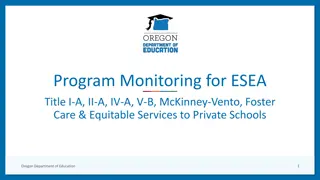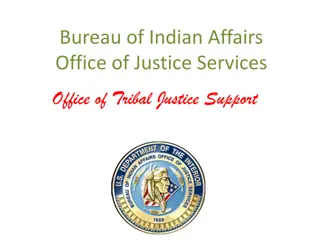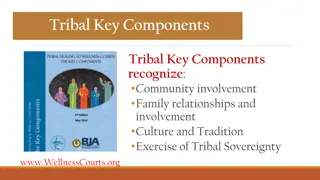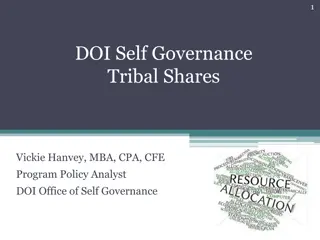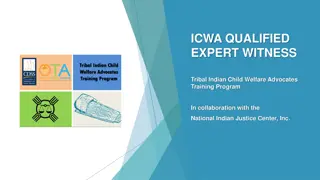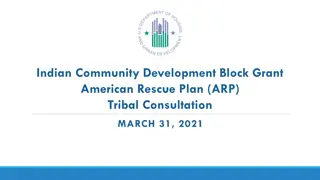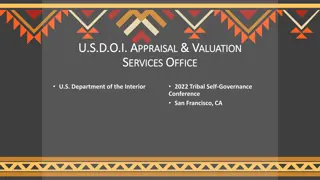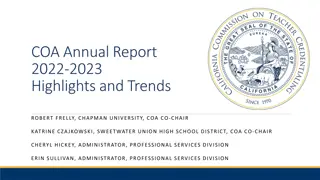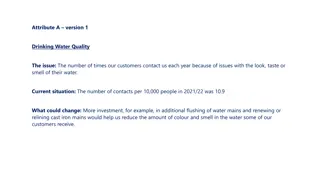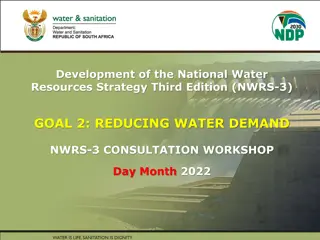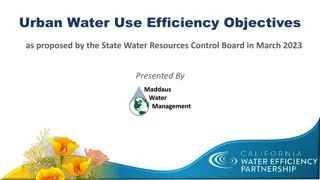Tribal Water Programs in California: Monitoring and Protection
California Native American tribes, including the Big Valley Band of Pomo Indians, are actively monitoring and protecting water resources throughout the state. With a unique political and legal relationship with the federal government, these tribes are self-governed and operate water monitoring programs that are federally reviewed and approved. These programs assess water quality, report impairments, and ensure the protection of tribal lands and interests across various waterboard regions.
Download Presentation

Please find below an Image/Link to download the presentation.
The content on the website is provided AS IS for your information and personal use only. It may not be sold, licensed, or shared on other websites without obtaining consent from the author. Download presentation by click this link. If you encounter any issues during the download, it is possible that the publisher has removed the file from their server.
E N D
Presentation Transcript
Tribes Water Programs in California - Monitoring, Assessing and Protecting Water Throughout the State Sarah Ryan, Environmental Director Big Valley Band of Pomo Indians January 18, 2019 CCHAB Network Presentation
California Native American Tribes 109 federally recognized in 34 counties in California 78 petitioning for recognition Federal treaties from the 1860 s were signed but never ratified by Congress, leaving Tribes unprotected. Some are now landless because of a series of policies that allowed the land to be sold from under them.
7 Language families with 83 known languages spoken
Tribal lands are located in some of the Waterboard regions; but there are Tribal interests in all of the regions.
Tribes are Self-Governed The United States has a unique and distinctive political legal relationship with Native American tribal governments as set forth in the constitution, treaties, statutes, executive orders and court decisions. Since the formation of the Union, the United States recognizes Native American tribes as domestic dependent nations under its protection. The federal government has enacted numerous statutes and promulgated numerous regulations that establish and define a trust relationship with Native American tribes. Our nation has recognized the right of Native American tribes to self-govern. Native American tribes exercise inherent sovereign powers over their members and territory. -https://tribalgovtaffairs.ca.gov/Laws_Regulations/
Tribal Water Monitoring Programs Federally reviewed and approved Quality Assurance Program Plans Annual Water quality assessment reports are required 56 Tribes in California have water quality monitoring data in the federal WQX (Water Quality Exchange) database. Can be funded with a variety of sources including USEPA CWA 106, USEPA NPS 319, BIA Water Resources, BOR and other state or local sources. Each funding source has its own requirements and restrictions about QAPPs, monitoring locations.
Tribal Water Monitoring Programs In USEPA funded water monitoring programs, Tribes evaluate their data against existing uses to determine impairment in annual WQX (Water Quality Assessment Reports). Tribes are piloting reporting impairments to ATTAINS (Assessment, Total Maximum Daily Load (TMDL) Tracking and Implementation System). Tribes have site specific and time specific uses of water more than recreation
Tribal Water Data Exists in WQX, CEDEN and local databases Is final or preliminary in WQX. Final is queryable by public Tribes run the gamut of datalogger to project grab samples Queryable data can be used in integrated reports and other regional or state evaluation efforts
Tribes as Water Quality Data Partners Tribes are monitoring waterbodies throughout California to protect their uses and resources Their data is legally defendable and available Tribal programs should be partnered with to enhance cyanotoxin monitoring throughout the state
Sarah Ryan sryan@big-valley.net 707-263-3924 x132



